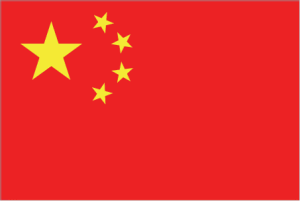Thomas P.M. Barnett is an old Pentagon hand and heavy-duty national-security thinker. He’s perplexed by a glaring omission in Tuesday’s front-page New York Times‘ piece on the growing distrust expressed by young Chinese military officers towards the U.S.
“This is the same U.S. military that assembles multinational war games in China’s front yard and sells advanced weaponry to a small island nation off its coast–in addition to anyone else who will buy it in the region (and yes, business is very good right now, as weapons purchases are up 100% over the past half decade),” he writes in his blog. “Are we honestly that clueless or has our disingenuity broken through to some higher, slightly irrational plane?”
He then details how things might look if China were doing in our neighborhood what we are now doing in theirs:
Follow me into this brave, alternative world:
— Imagine the Chinese navy holding multinational exercises with the Cubans and Venezuelans and Nicaraguans (a silly sight, I know) in the waters around Cuba, while Beijing warns us subtly that their 1979 Cuba Defense Act will be pursued to the ultimate vigor required, including the sale of advanced attack aircraft to the Cuban air force.
— Imagine Chinese carriers conducting such operations, sporting aircraft and weaponry that could rain destruction over most of the continental U.S. at a moment’s notice.
— Imagine Chinese spy craft patrolling the edge of our local waters and flying around the rim of our airspace.
— Imagine the Chinese selling all sorts of missile defense to Venezuela and other allies “scared of rising American militarism.”
— Imagine weapons purchases throughout Latin America doubling in five years time, with China supplying most of the goods.
— Imagine Chinese naval bases and marine barracks doting the Latin American landscape and Caribbean archipelago.
— Imagine a Cuban missile crisis-like event in the mid-1990s, which led the Chinese military to propose a new evolution in their warfare since. (A reference to the Taiwan Strait crises of 1995-96)
— Imagine the Chinese military conducting regime toppling events in the Middle East, involving countries upon whom our energy dependency is dramatically and permanently rising, while China actually gets the vast bulk of its oil from non-Persian Gulf sources like Canada, Mexico, Latin America, Africa and itself.
— Imagine the Chinese government demanding that the Chinese military produce an elaborate report every year detailing the “disturbing” rise of U.S. military power.
— Imagine the Chinese military announcing their new military doctrine of attack from the sea and air, with their documents chock full of bombing maps of U.S. military installations that are widely dispersed across the entirety of the continental United States, meaning their new war doctrine has–at its core–the complete destruction of U.S. military assets on our territory as the opening bid.
— Imagine the U.S. military stating that this new doctrine of attacking the entirety of the U.S. territory is necessary to maintaining the regional balance of power in the Western hemisphere, because the U.S. Navy has–in an “unprovoked” and “provocative” manner, begun significant patrolling operations in the Caribbean Basin, whose waters constitute a “profound” national interest to the Chinese.
— Imagine this series of developments unfolding over close to two decades, as China, having lost its familiar great-power war foe, the Soviet Union, firmly glommed onto the U.S. as a replacement enemy image.
— Imagine all that, and then imagine how the U.S. military views the Chinese military.
— Imagine if the Chinese military offered military-to-military ties under such conditions. (Something the U.S. has been seeking.)
What do you think the U.S. Congress would say to that? Would it be considered “caving in” to Chinese pressure?
The truth, unexplored in this otherwise fine article, is that the U.S. military needs–and has needed–rising China as an enemy image for more than a decade-and-a-half now, so I don’t know how we can expect anything from young Chinese officers other than returning the favor.



